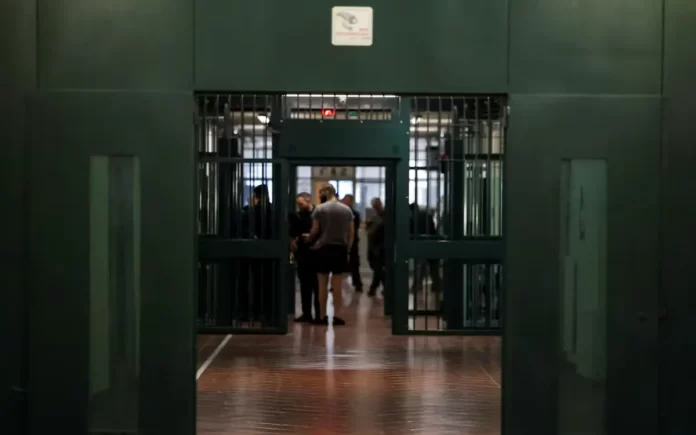Milan: Protests erupt in the prisons of Parma, Northern Italy, as inmates voice grievances over poor sanitation and overcrowding, highlighting a mounting crisis within the country’s correctional facilities. Against a backdrop of soaring cases of suicide and self-harm, these demonstrations underscore deep-rooted issues plaguing Italy’s penal system.
Giorgia Meloni’s hard-right government has responded to the unrest with a stern stance, threatening to criminalize even peaceful protests—a draconian measure unparalleled in Western democracies, according to experts.
This move forms part of a broader wave of law-and-order initiatives spearheaded by Meloni’s administration ahead of the upcoming European Parliament elections in June. Among these initiatives is a proposal to introduce new offenses and harsher penalties, signaling a significant shift in Italy’s criminal justice landscape.
Read More: Luuka Jones Overcomes Long COVID to Make Historic Fifth Olympic Appearance
A less-publicized provision within a government security bill, if enacted, could lead to doubling jail time for inmates engaging in acts of protest, such as banging on cell bars or participating in hunger strikes—an alarming prospect criticized by legal experts and prison staff alike.
Critics argue that Italy’s prison crisis stems from chronic overcrowding and inadequate staffing levels, hampering inmates’ access to essential services, including healthcare, psychiatric support, and education. The resulting environment is marked by pervasive psychological distress, low morale, and frequent protests, either driven by personal grievances or spurred by intolerable living conditions.
Read More: China’s Xiaomi Enters Electric Vehicle Market, Pioneering Beyond Apple’s Trail
Donato Capece, a former prison guard with nearly five decades of experience and current head of the sector’s union Sappe, expressed reservations about criminalizing acts of passive resistance, emphasizing the need for a more nuanced approach to addressing inmate grievances.
Angela Della Bella, a criminal law professor at Milan University, warned that the introduction of new offenses and longer sentences would exacerbate court congestion and worsen prison overcrowding—a critical issue already affecting Italy’s correctional facilities.
Read More: India | Centre Takes Bold Action to Safeguard Dogs from Illegal Fighting: PETA India Applauds
Recent data from Antigone, a prisoners’ welfare organization, revealed that Italy’s prisons housed nearly 61,000 inmates as of January, exceeding official capacity by approximately 10,000—a stark illustration of the systemic challenges facing the country’s penal system.



